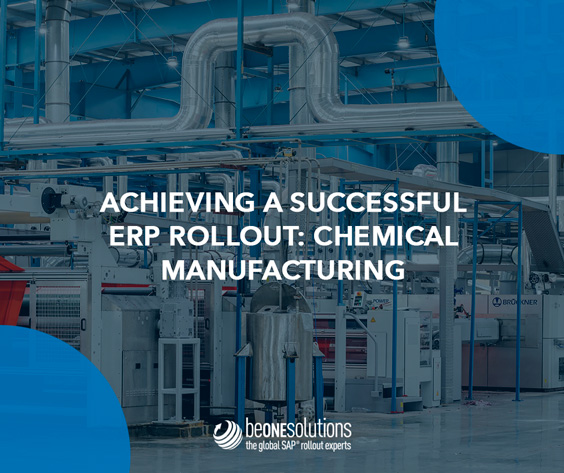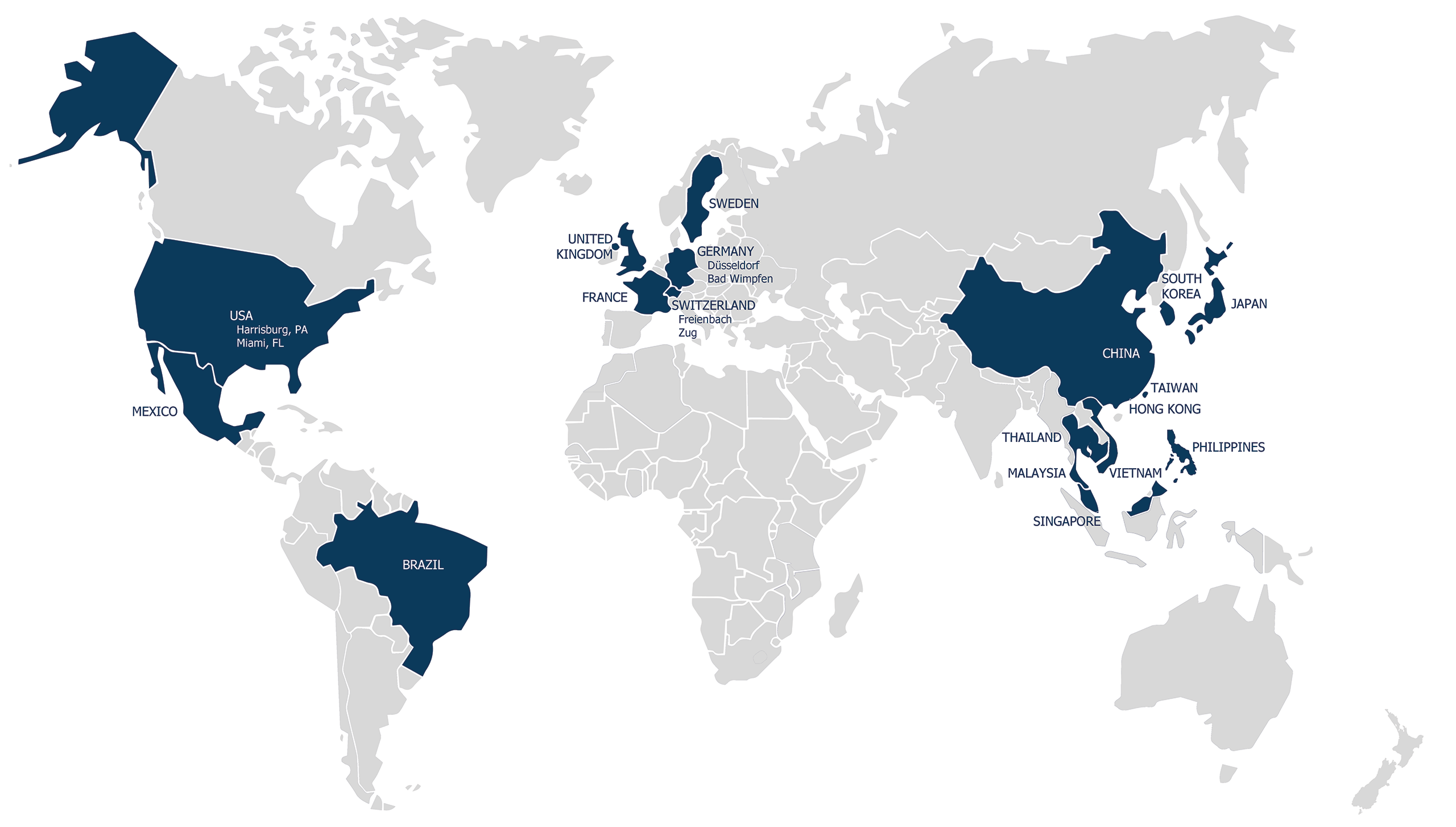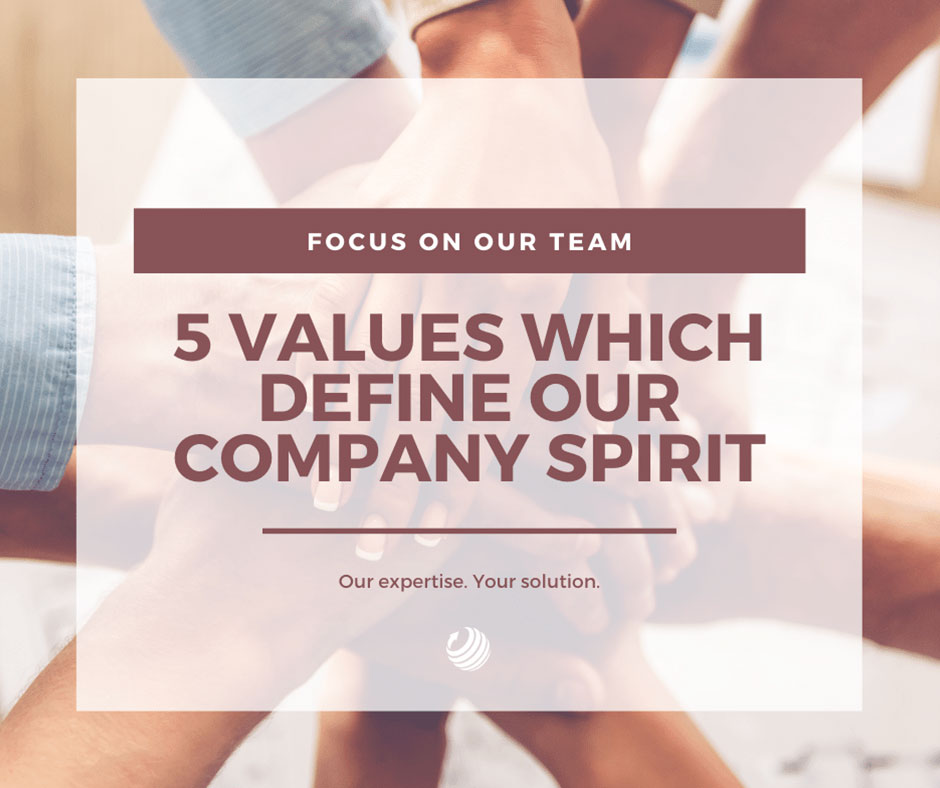Achieving A Successful ERP Rollout Chemical Manufacturing

Table of Contents
CloseManufacturing is one of the longest-standing industries of modern-day society. A key development of the industrial revolution, applied technology has taken the process of mass production to new heights and continues to do so today. From consumer-packaged goods to furniture to automobiles, manufacturing is a crucial component of the global economy. With all the attention falling on everyday items, it’s common to neglect another essential industry subsector: chemical manufacturing.
It may seem like commercial chemicals don’t have much applicability outside of science classrooms and labs, but these products have a cascading positive effect on society. Safe food preservatives, toiletries and makeup, the revolutionary synthetic polymers that have taken over the globe, and countless other consumer products all depend on the successful development, production, and distribution of chemicals.
Although companies within this sector require much more physical infrastructure than those in other industries, the engineered systems and tools used can also benefit from adopting next-generation technology. Especially once you factor in the unique challenges of running an optimized chemical manufacturing facility, it becomes more and more critical that stakeholders consider updating ERP systems and rollout experts to help combat these pain points.
Challenges of Global Chemical Manufacturing and Distribution
Advancements in chemical production processes and the arrival of the Internet of Things bring multiple benefits to the table for industry members. Unfortunately, meticulous implementation, management, and maintenance are required to realize these benefits. When mismanaged, some of the common sources of pain for global chemical manufacturing and distribution include:
Variable Commodity Prices
Widely used chemical products derive from other compounds and achieve their commercial applicability only after the latter is refined. This process consumes large quantities of chemicals and energy, representing two major industry costs. With the price of energy varying based on location and commodity costs influenced by supply chain issues and labor shortages, it can be very difficult for executives to project financial outcomes.
Recalls and Audits
Given the historical precedent for manufactured chemicals to cause human harm, international and regional regulatory bodies place restrictions around how this production should be carried out. These laws help set a standard for product quality and allow regulators to quickly identify products that need to be recalled. Audit, another form of regulatory measure, assess manufacturing facilities to ensure that safety, quality, and efficiency standards are being met.
While necessary to protect consumers and employees, recalls and audits are a thorn in the side of stakeholders. They tie up staff and drain resources, not to mention the impact that they can have on public relations and company valuations. For multinational companies, each production subsidiary may also have different regulatory and legal requirements based on location, making it difficult to standardize protocols and processes.
Data Overload
All companies navigating in the time of Industry 4.0 need to leverage their data effectively to achieve maximal results, and chemical manufacturing is no exception. With all the systems required to predict, monitor, and analyze chemical development, these production companies generate large stores of data on everything from batch quality to machine efficiency. Data is collected from a wide range of categories, including:
- The managing variance between batches
- Product tracking across storage and shipping
- Forecasting inventory needs
- Plant efficiency and maintenance
- Utilities and scheduling
This data is often siloed in specialized departments, making it difficult for headquarters to get a firm grasp on how the situation is unfolding on the ground. This mass of information also makes it easy for data errors to occur, further draining capital and resources.
Successful ERP Rollout in the Chemical Manufacturing Market
Although there has been a downward trend for years in mergers and acquisitions, experts are unsure how the post-pandemic society will influence growth within the chemical manufacturing industry. Some territories are showing renewed interest in acquiring companies from around the globe, while other chemical manufacturing enterprises are looking to improve their operations through the rollout of a new ERP. In either case, proper implementation of a new digital system is key to unlocking siloed data, efficiencies, and profits.
Leveraging IoT and Cutting Edge ERPs
The internet of things is inspiring even the most asset-heavy of industries to adopt new systems. From multi-cloud application environments to fully integrated, automated systems, there are endless ways in which the latest generation of enterprise resource planning platforms can improve operations for chemical manufacturers.
For instance, the formulation management capabilities provided by current ERPs allow chemical manufacturers to track, analyze, and automate the ordering of raw materials needed to produce products. When formulas are tweaked, this intelligent system can automatically adjust orders from specific suppliers based on the material they provide.
ERP experts like SAP have been helping thousands of chemical companies around the world lower costs and improve efficiencies, all while providing a better overall product.
Bringing in Global Rollout Experts
Not only does SAP have extensive experience in handling the digital needs of chemical manufacturers, but they also have a network of partner companies that aid in the rollout of new ERPs at a global scale. These expert teams help address both the human and processes sides of large-scale ERP rollouts, helping integrate local and global processes, so that headquarters and subsidiaries are perfectly aligned. A perfect example of such alignment is our customer BASF:
"There is a commitment within BASF to put everybody on the ECC platform. We see that over the course of the last two to three years there is a recognition that one size does not fit all for two reasons. In our case it was a completely different business model."
Vince WEISNOSKI, Manager of Business Processes at BASF
Want to learn more about how SAP’s ERP solutions and global rollout partners are helping chemical manufacturers maintain a competitive edge in the era of Industry 4.0? Contact be one solutions today! Our international team of ERP rollout experts has been successfully transforming enterprise-level companies for decades through the guided implementation of 1- and 2-tier SAP solutions like Business One and S4/HANA.
You won’t want to miss be one solutions‘ next webinar. Add your email address to be notified :
Please select your language
Welcome on be one solutions‘ websites.
Please select your language.




